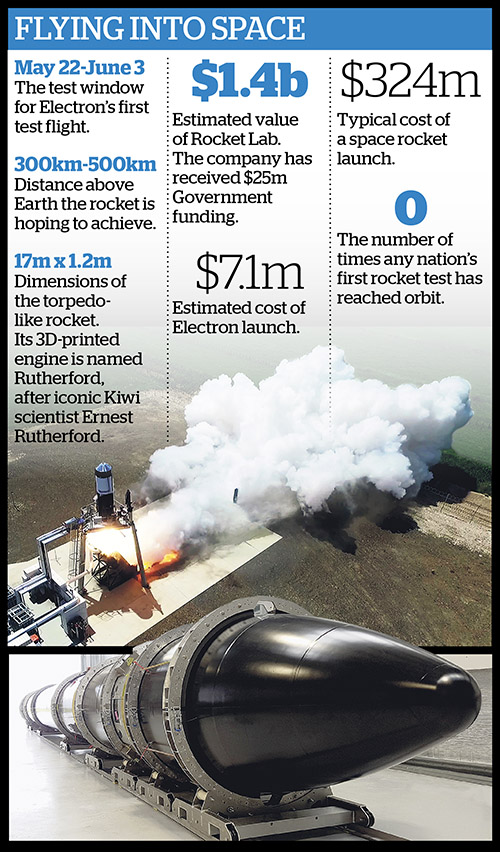May 22, 2017 – Peter Beck’s Rocket Lab with an injection of U.S. venture capital is finally ready to roll out its Electron rocket, a 10.5 ton, 18-meter (60 feet) two-stage launcher designed to put payloads up to 225 kilograms (just under 500 pounds) into low-Earth orbit. Back in April 2015, I wrote about Rocket Lab’s technology, an electronic rocket powered by Rutherford engines.

Named after New Zealand-born, Ernest Rutherford, known as the father of nuclear physics, the engines are the first to be totally manufactured using 3D printers. The casing of both stages and the liquid oxygen tanks are made from a carbon fibre composite that is lightweight to give the rocket greater payload capacity than launch vehicles made using more conventional materials.
The first stage with nine Rutherford Engines clustered at its base provides thrust of approximately 40,000 pounds. The second stage, a single Rutherford engine, delivers an additional 5,000 pounds of thrust.
Rocket Lab is the first space company to entirely manufacture its engines using 3D printing. SpaceX and NASA manufacture subcomponents using 3D printing but not an entire engine.
The test launch this week from New Zealand’s Mahia Peninsula (see picture below) will be the first in a series of planned flights.

States Beck, “if we get to orbit on the first flight, we will have done something most countries have never achieved.” They have aptly called this first rocket, “It’s a Test.” The only real impediment this week may be New Zealand weather which can be a combination of every season all in one day.
Once up and running Rocket Lab hopes to bring down launch costs to less than $5 million U.S. The plan to ramp up to weekly launches has been delayed but should begin sometime in the next two years. Currently, Rocket Lab has 30 scheduled customers for Electron.
One of the Google Lunar XPrize contestants, Moon Express, plans to use Electron as its launch vehicle to get to the Moon and win the $30 million competition.















